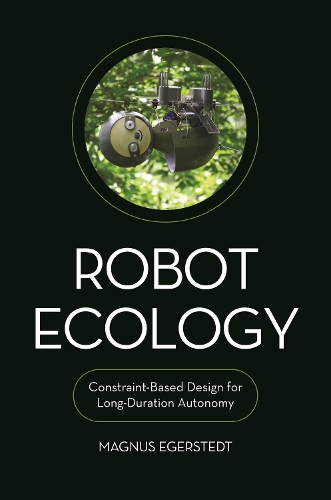
Robot Ecology: Constraint-Based Design for Long-Duration Autonomy
(Hardback)
Publishing Details
Robot Ecology: Constraint-Based Design for Long-Duration Autonomy
By (Author) Magnus Egerstedt
Princeton University Press
Princeton University Press
1st March 2022
United States
Classifications
Tertiary Education
Non Fiction
Ecological science, the Biosphere
629.892
Physical Properties
Hardback
360
Width 156mm, Height 235mm
Description
A revolutionary new framework that draws on insights from ecology for the design and analysis of long-duration robots.
Robots are increasingly leaving the confines of laboratories, warehouses, and manufacturing facilities, venturing into agriculture and other settings where they must operate in uncertain conditions over long timescales. This multidisciplinary book draws on the principles of ecology to show how robots can take full advantage of the environments they inhabit, including as sources of energy.
Magnus Egerstedt introduces a revolutionary new design paradigmrobot ecologythat makes it possible to achieve long-duration autonomy while avoiding catastrophic failures. Central to ecology is the idea that the richness of an organisms behavior is a function of the environmental constraints imposed by its habitat. Moving beyond traditional strategies that focus on optimal policies for making robots achieve targeted tasks, Egerstedt explores how to use survivability constraints to produce both effective and provably safe robot behaviors. He blends discussions of ecological principles with the development of control barrier functions as a formal approach to constraint-based control design, and provides an in-depth look at the design of the SlothBot, a slow and energy-efficient robot used for environmental monitoring and conservation.
Visionary in scope, Robot Ecology presents a comprehensive and unified methodology for designing robots that can function over long durations in diverse natural environments.
Author Bio
Magnus Egerstedt is the Stacey Nicholas Dean of Engineering in the Samueli School of Engineering at the University of California, Irvine. He is the coauthor of Graph Theoretic Methods in Multiagent Networks and Control Theoretic Splines: Optimal Control, Statistics, and Path Planning (both Princeton).
